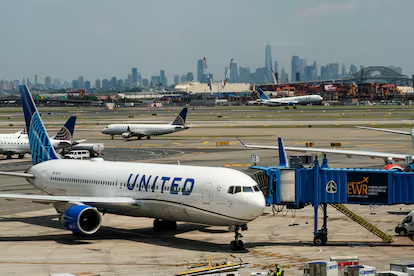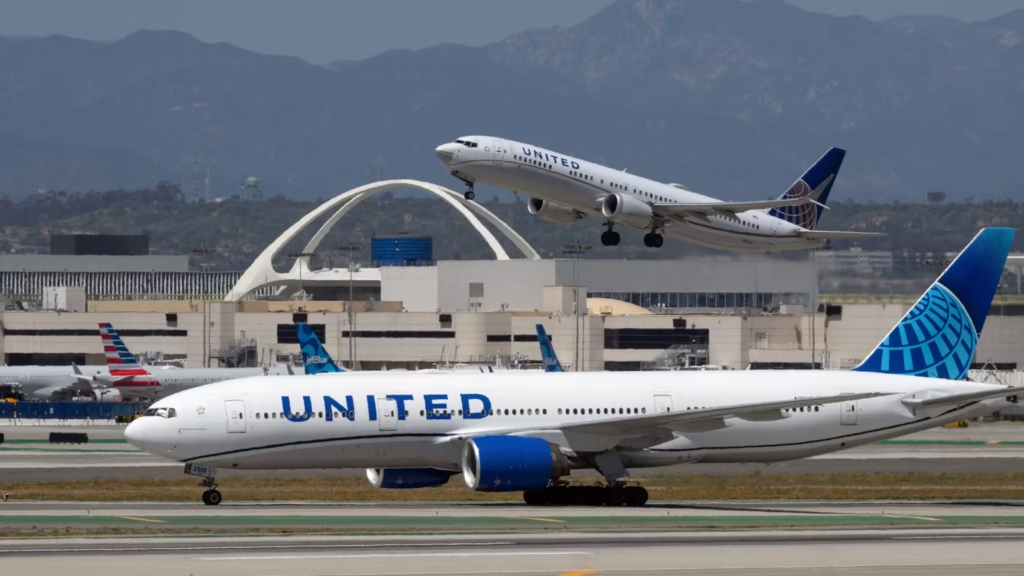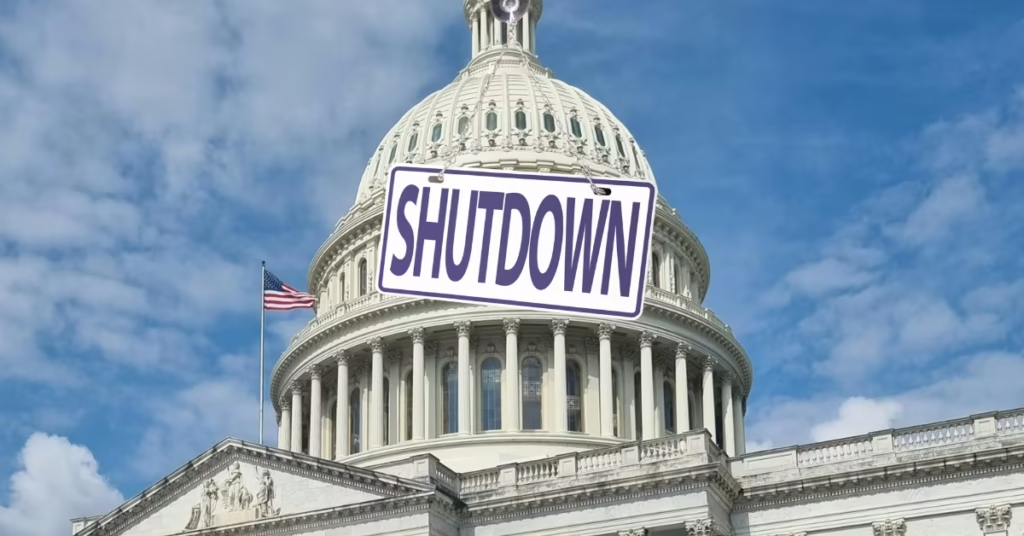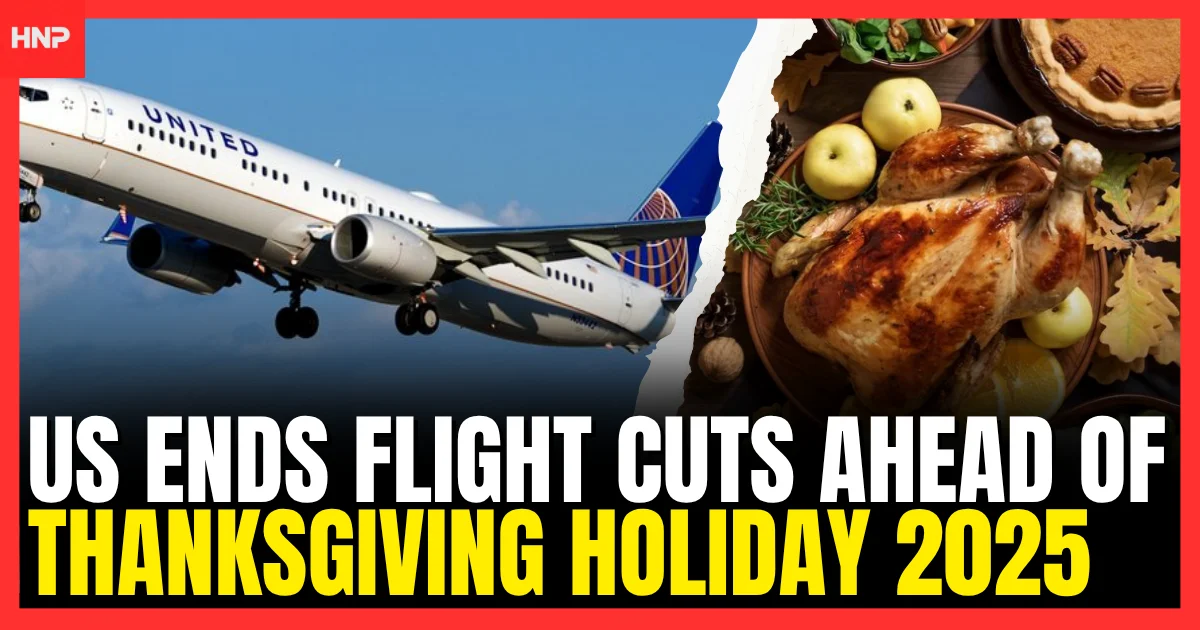Emergency aviation restrictions end as controllers return post-shutdown. 6M+ travelers benefit from restored schedules this Thanksgiving.
Table of Contents
US Ends Flight Cuts Ahead of Thanksgiving Holiday 2025
Introduction
Federal aviation authorities have cancelled emergency capacity limitations that forced airlines to reduce scheduled departures throughout November. The decision comes as air traffic control towers report workforce attendance has stabilized after a prolonged government funding crisis concluded.
Timing proves crucial as Thanksgiving approaches, with American travelers booking over 6 million airline seats for the holiday period. This represents year-over-year growth of roughly 2%, making restored flight schedules essential for avoiding mass disruptions during the nation’s peak travel season.

Background: What Caused Flight Capacity Cuts?
Workforce Crisis During Federal Funding Lapse
A prolonged budget standoff beginning in October left federal operations unfunded for 43 days. Air traffic controllers, classified as critical personnel, faced mandatory work requirements despite paychecks stopping completely.
The situation created cascading problems:
- Attendance plummeted as workers sought paid employment elsewhere
- Fatigue increased among those continuing to report for duty
- Safety margins narrowed with skeleton crews managing complex airspace
- Financial pressure mounted as bills came due without income
By early November, the FAA determined risk levels required immediate intervention to prevent potential incidents.
The Emergency Order Explained
Capacity Reduction Requirements
Regulators issued mandatory scheduling cuts on November 7, requiring carriers to reduce planned departures:
| Restriction Element | Specification |
|---|---|
| Maximum reduction required | 10% of domestic departures |
| Implementation date | November 7, 2025 |
| Affected routes | US domestic flights |
| Reason cited | Controller staffing crisis |
| Duration | Until workforce stabilized |
Data source: Federal Aviation Administration emergency directive
Real-World Consequences
The mandate’s first week produced severe travel disruption:
- Mass cancellations numbering in the thousands
- Extensive delays affecting even more passengers
- Remote operations with distant towers handling local traffic
- Passenger confusion about rebooking and compensation

Recovery Timeline and Current Status
Dramatic Improvement in Recent Days
Transportation officials tracked daily disruption alerts to measure recovery progress:
| Tracking Period | Disruption Alerts Issued | Context |
|---|---|---|
| November 8 (Saturday) | 81 alerts | Peak crisis point |
| Most recent weekend | 9 total alerts | Post-recovery period |
| Improvement rate | 89% reduction | Week-over-week change |
Source: Department of Transportation operational tracking
The funding impasse resolution triggered rapid workforce return, enabling regulators to withdraw emergency capacity limits.
Official Position from Transportation Leadership
Secretary Announces Restoration
Transportation Secretary Sean Duffy declared the crisis resolved in his announcement withdrawing restrictions. He emphasized workforce attendance has “continued to snap back” following the budget agreement.
Duffy outlined forward-looking priorities beyond immediate crisis management:
Aggressive recruitment: Accelerated hiring campaigns to expand controller ranks permanently.
Technology investment: Development of next-generation traffic management systems.
Infrastructure upgrades: Replacing aging equipment with modern alternatives.
Workforce stability: Preventing future crises through better contingency planning.

Thanksgiving Travel Projections
Industry Forecasts Show Strong Demand
The AAA travel organization projects Thanksgiving 2025 will set participation records:
Approximately 6 million passengers will board commercial flights during the traditional holiday window. This marks steady growth continuing multi-year trends in air travel preference over driving for long distances.
Thanksgiving consistently ranks as America’s single largest travel event by participation rate, exceeding even Christmas and New Year periods.
What Changed Passengers Can Expect
With emergency measures withdrawn, travelers will encounter:
- Complete schedules operating without government-mandated cuts
- Better punctuality compared to early November performance
- Adequate staffing at control facilities nationwide
- Standard holiday volume without artificial capacity constraints
Normal weather delays and seasonal congestion remain factors during busy departure windows.
The 43-Day Shutdown’s Aviation Impact
Historical Context
This funding lapse exceeded all previous government shutdowns in duration at 43 days. Controllers experienced unique hardships:
Economic strain: Workers secured temporary positions to maintain household finances during the paycheck interruption.
Physical toll: Operating safety-critical systems under extreme stress caused widespread fatigue.
Job security fears: Officials issued termination warnings for excessive absences before the crisis ended.
Pre-existing problems amplified: Chronic understaffing became acute during the workforce exodus.
These converging factors forced regulators into unprecedented intervention limiting commercial aviation capacity.

Compliance Investigation Underway
Enforcement Actions Under Review
Regulators disclosed ongoing investigations into carrier behavior during the emergency period. The FAA announcement referenced “reports of non-compliance by carriers” without providing identifying details.
Unresolved questions include:
- Carrier identity: Which airlines allegedly violated capacity requirements
- Violation nature: Whether scheduling, operations, or reporting triggered concerns
- Penalty structure: What consequences non-compliant carriers might face
- Investigation timeline: When findings and enforcement decisions will be announced
Officials stated only that the agency is “reviewing and assessing enforcement options” at this stage.
Workforce Compensation and Recovery
Controllers Receive Overdue Pay
Workers who continued reporting during the funding lapse will obtain:
- Retroactive compensation covering all unpaid work periods
- Absence amnesty removing disciplinary threats issued during crisis
- Schedule normalization ending mandatory extended shifts
- Termination threat withdrawal restoring job security
Transportation officials committed to hiring surges addressing chronic understaffing that worsened shutdown impacts.
FAQs About Aviation Restriction Removal
1. Can travelers expect normal flight operations for Thanksgiving?
Capacity restrictions have been completely withdrawn. Airlines now operate full published schedules after controller attendance recovered to acceptable levels when the funding crisis concluded.
2. What are Thanksgiving 2025 air travel volume predictions?
Industry analysts forecast approximately 6 million passengers will fly during the Thanksgiving holiday window, representing about 2% growth compared to the previous year according to AAA projections.
3. What caused controller absences during the budget crisis?
Controllers worked without receiving paychecks for 43 days while classified as essential employees. Many obtained second employment to cover expenses, creating fatigue and availability conflicts that produced dangerous staffing gaps.
4. Have airlines been penalized for violating flight reduction orders?
Regulators confirmed investigations into alleged non-compliance but haven’t identified specific carriers publicly. Enforcement decisions remain pending as the FAA completes its review process.
5. Should passengers still anticipate Thanksgiving flight delays?
Seasonal volume and weather conditions may still cause typical holiday delays. However, controller shortage-related disruptions should not occur now that staffing has normalized.
Conclusion
Withdrawal of emergency aviation capacity limits resolves the most visible consequence of the recent government funding crisis. Controller workforce recovery enables full flight schedules to accommodate record Thanksgiving demand.
The episode highlights critical infrastructure vulnerability when essential federal employees face extended work without compensation. As 6 million travelers prepare for holiday flights, restored operations demonstrate how rapidly recovery can occur once underlying funding issues resolve.
Booking Thanksgiving travel? Verify current flight status and explore our comprehensive guides on passenger rights and holiday booking strategies.


